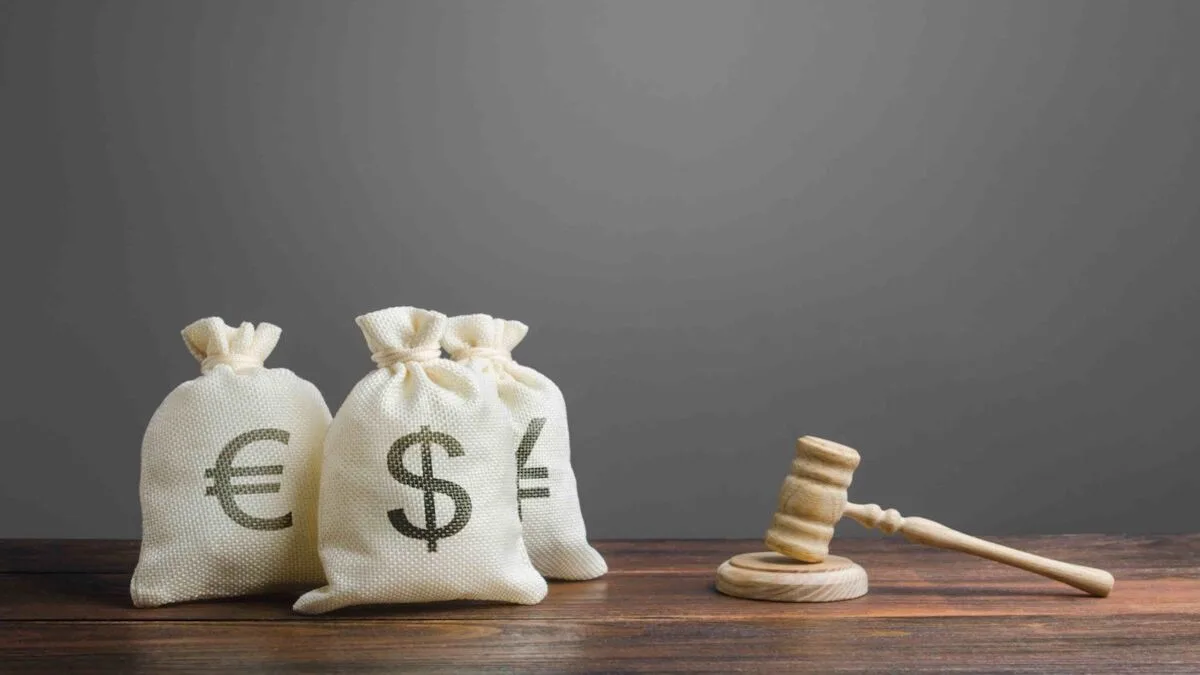Table of contents
- Defamation Litigation threatens Freedom of Speech
- Suing for Defamation in Australia
- How Much does it Cost to Sue for Defamation Australia
- Can I Sue for Defamation of Character in Australia?
- How Much Can I Claim for Defamation of Character
- Successful defamation cases Australia
- Potential Consequences of Defamation Litigation
- Defamation Act Qld
- New Defamation Laws Australia
Defamation Litigation threatens Freedom of Speech
The growth in defamation litigation is a worrying trend that is threatening freedom of speech in Australia. This legal action is a ‘useful tool’ for those in well paid positions of power, who seek to silence their critics.
Unfortunately, when CEO’s, senior bureaucrats or politicians take civil action against ordinary everyday people, there is rarely a level playing field.
The United States has a constitutionally entrenched freedom of speech. However, Australia only has an implied freedom of speech. Australian governments have failed to limit the capacity of powerful interests to silence critics. This has seen defamation law emerge as a significant threat to freedom of speech.
Suing for Defamation in Australia
The wealthy and powerful often use defamation law. Indeed the civil law is something that only those who have money or influence have easy access to. Look no further than mining billionaire Clive Palmer for a powerful man prepared to litigate in order to silence his critics. Indeed he has listed one of his favourite pastimes as taking defamation litigation.
Most recently, Clive Palmer commenced a defamation lawsuit action against the YouTube personality Jordan Shanks a.k.a. Friendly Jordies. Palmer’s lawyer demanded $500,000 in damages, legal costs, and also demanded that Shanks “make no further publication of and concerning” Palmer. Shanks hilarious response revealed liberating behaviour only possible from a defendant with ‘nothing to lose’.

How Much does it Cost to Sue for Defamation Australia
Defamation law is very expensive and as a result it is largely for the rich. The cost of employing a barrister alone could be as high as $100K a week. The full cost of a lengthy defamation action may well be over $1M. Lets be honest, who has a spare million lying around?
If a defamation cost you a business deal worth $50,000, you might expect the court to award you $50,000 in damages. Often, however, the calculation is not that straightforward. That can lead to substantial judgments on occasion. Alternatively, if you fail to prove your case you could lose altogether and even have Court costs (which can be considerable) awarded against you.
Can I Sue for Defamation of Character in Australia?
If you believe you have a valid case, it is recommended to seek legal advice to understand your rights and whether your case meets the required criteria under Australian law.
The practical decision you would have to make is, “how much money do you have and how much are you prepared to spend?”
How Much Can I Claim for Defamation of Character
The short answer is you can sue for whatever has been the damage caused. Some high profile defamation litigation has involved Australian celebrities:
- Geoffrey Rush was awarded a minimum of $850,000 in his defamation case against The Daily Telegraph.
- Rebel Wilson was awarded $4.7 million (later reduced to $600,000) when she sued a magazine for defamation.
Hollywood stars and media empires make for high-profile examples, but the law applies equally to everyone. For example:
- A Sydney man was awarded $35,000 over defamation in a Facebook community group.
- A lawyer in Adelaide won a $750,000 defamation payout over a negative Google review.
Successful defamation cases Australia
There has been an increase in local government litigation against residents over recent years.
This trend has significant freedom of speech implications for our democracy, because often actions arise from individual citizens expressing genuinely held political beliefs.
Defamation Litigation to Silence Toogoods
Cassowary Coast Regional Council in Far North Queensland has commenced a number of legal proceedings against Steve and Julie-Anne Toogood of Mission Beach. However, the only actions the Toogood’s have initiated against Cassowary Coast Regional Council have been for breaches of the Privacy Act.
Defamation litigation and other civil actions are an abuse of power, because of the limited access to justice most citizens face. Unfortunately Legal Aid is generally not available. This is the reason people are self-represented and miscarriages of justice occur.
Organisations such as the LGAQ and Cassowary Coast Regional Council have an almost unlimited bank account and aren’t afraid to sue. Indeed, it has been argued the whole purpose of such litigation is to gain a judgement greater than their assets, causing bankruptcy. This will almost certainly ruin their life.
Totalitarian regimes often use fear as a means to control people. However, this is becoming a reality here. Civil litigation has become a way to discourage people from actively engaging in debate. Consequently, many people are becoming too afraid to speak up, for fear of legal sanction.

Australia has seen several high-profile successful defamation cases, especially as defamation law is actively used to protect individuals and businesses from reputational damage.
One notable example is the 2019 case where Geoffrey Rush won a defamation lawsuit against The Daily Telegraph. The court awarded him $2.9 million in damages after the newspaper accused him of inappropriate behaviour. Another well-known case was Rebel Wilson’s lawsuit against Bauer Media in 2017, where she initially won $4.7 million, although it was later reduced on appeal to $600,000.
Defamation cases have been on the rise due to social media and online defamation, where people are more likely to make defamatory comments publicly.
These examples highlight the growing legal landscape of defamation in Australia, especially as digital platforms continue to play a central role in modern communication.
Potential Consequences of Defamation Litigation
Unfortunately, I am in a unique situation to write on issues concerning defamation. As an elected councillor and MP I copped heaps of insults and criticism …. critics called me everything from dog, rat, scum and coward to four letter words I will not repeat here.
However, I never commenced litigation against my critics. Ultimately taking a position in public office will subject you to a significant amount of criticism. Accordingly this just goes with the job. Indeed as the old saying goes, if you can’t stand the heat, get out of the kitchen.
Defamation Act Qld
Unfortunately, my values are not held by many others. Thus, in December 2017, litigation was commenced against me. I was not sued by a small regional council, but by the LGAQ CEO Greg Hallam. He lodged a defamation claim against me in the District Court claiming several hundred thousand dollars. This claim would have to be decided under old law that did not include the public interest factors included under reforms to the Defamation Act.
The claim relates back to my time in the state parliament when I repeatedly raised issues concerning local government corruption. Hence, the LGAQ will now teach me a lesson. As a result, anyone else thinking of raising corruption concerns will think twice before speaking up.

Surviving Defamation Litigation
The stress of my journey has led me to create this video to help others facing defamation litigation. Producing this video is an act of solidarity with other activists. I am confident anyone who is subject to a defamation claim will find it useful.
New Defamation Laws Australia
When governments or corporations engage in civil litigation against their critics, the dice is well and truly loaded their way. This will remain the case as long as we live in an adversarial justice system. Consequently, the party with most resources and the most expensive hired gun, is likely to beat a struggling self-represented defendant.
Defamation Law Reform Australia
Australia updated its defamation laws in 2021, including the introduction of a serious harm threshold, which requires plaintiffs to prove that the defamatory statement caused serious harm to their reputation. This reform aims to prevent trivial claims from clogging the court system. It was a start!
However, there must be a further rebalancing in relation to defamation law. There should be a reluctance to engage in legal attacks upon people for simply stating valid opinions. Indeed, even if opinions are not valid or rational, but truly held, who are those in power to say people must not speak up for fear of legal reprisals? We must have law reform now, if we are to properly protect freedom of speech.
– Rob Pyne (Former MP and Councillor on Cairns Regional Council)


Comments
2 responses to “Defamation Litigation Under the Spotlight”
[…] trend that is threatening freedom of speech. In my view, it is often an abuse of power, such as when politicians and CEO’s use defamation law to silence people both from within their organisations and outside. When we allow their right to sue to dominate over […]
[…] defamation law reform. Consequently, without reform, defamation actions will remain the domain of privileged and powerful white males. As a result, it will remain a sport for them to distress and ultimately ruin the more vulnerable […]